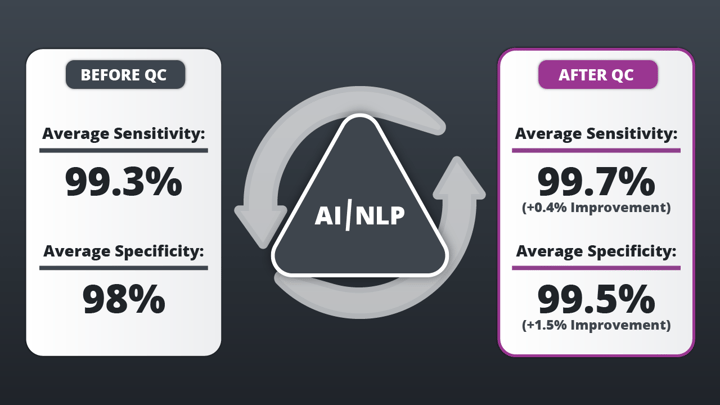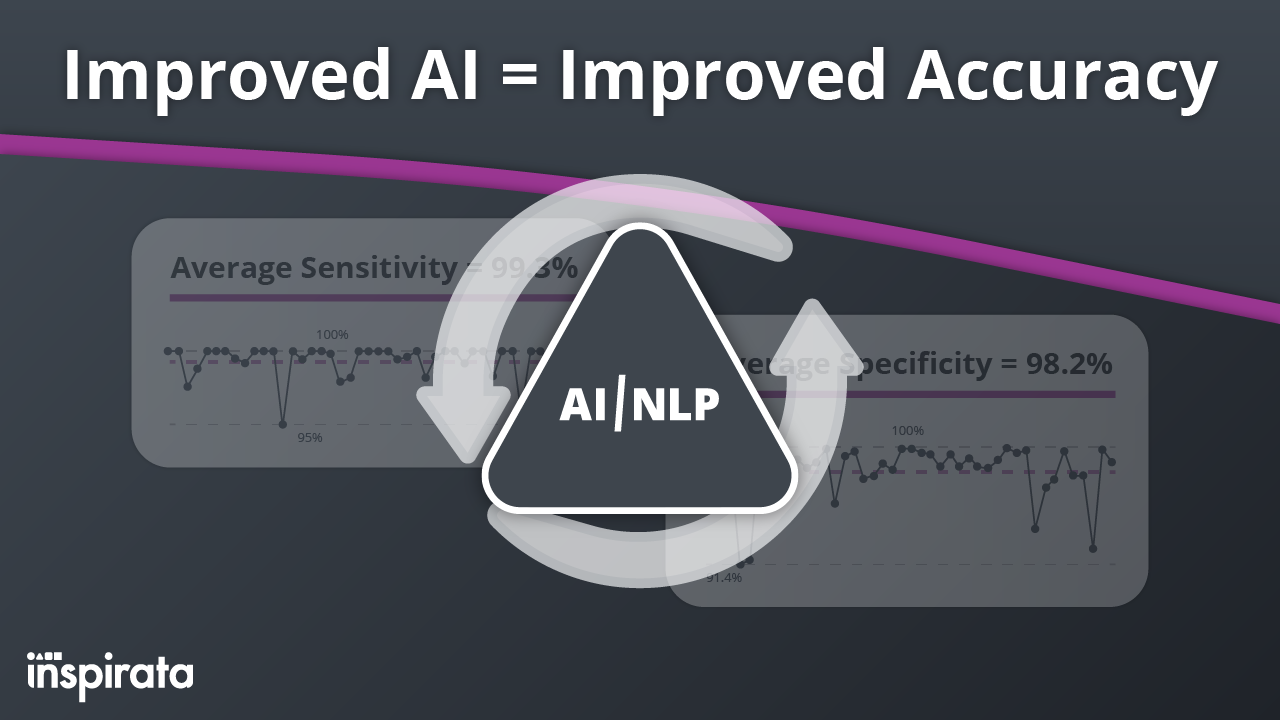At Inspirata, we believe that innovation is a never-ending journey. We're committed to the ongoing process of identifying, analyzing, and executing incremental improvements to our systems, processes, and products. So, how exactly do we achieve this continuous improvement?
Quality Control (QC) studies play an important role in our quest for perfection. These studies enable us to analyze our past performance, pinpoint areas needing improvement, and strategize on how to enhance the AI/NLP engine that lies at the heart of our industry-leading cancer registry and clinical trial matching software. Occasionally, during these QC studies, we encounter cases or reports that are written in ways that the engine hasn't seen before. By analyzing these unique cases, we can fine-tune our engine and teach it to recognize and handle similar situations better in the future.
However, the key here is balance. It's essential to strike a balance between addressing specific cases and making improvements that benefit all current and future customers. Our aim is to avoid overfitting for specific scenarios and instead focus on making incremental enhancements that positively impact the engine's sensitivity, specificity, and overall quality after each QC study.
Our rigorous approach to learning and improving has tangible results. At the onset of each QC study, when we first gauge how our engine is performing, we see an average sensitivity of 99.3% and an average specificity of 98%. However, following engine improvement through completed QC studies, we arrive at a final average sensitivity of 99.7% and an average specificity of 99.5%. These results are a clear demonstration of our commitment to excellence and emphasize the positive impact of our mission to continuously improve.

It's noteworthy to point out that both our initial and concluding results show a higher sensitivity compared to specificity. This is because we tune our engine in such a way that it will return fewer false negatives (sensitivity) at the expense of some false positives (specificity), which are generally less harmful.
We're incredibly proud of the milestones we've achieved thus far, but our journey doesn't end here. We remain deeply committed to continuing to advance our technology, refine our processes, and exceed the expectations of our current and future customers. The quest for perfection never stops, and the numbers are a testament to our progress on this path.

